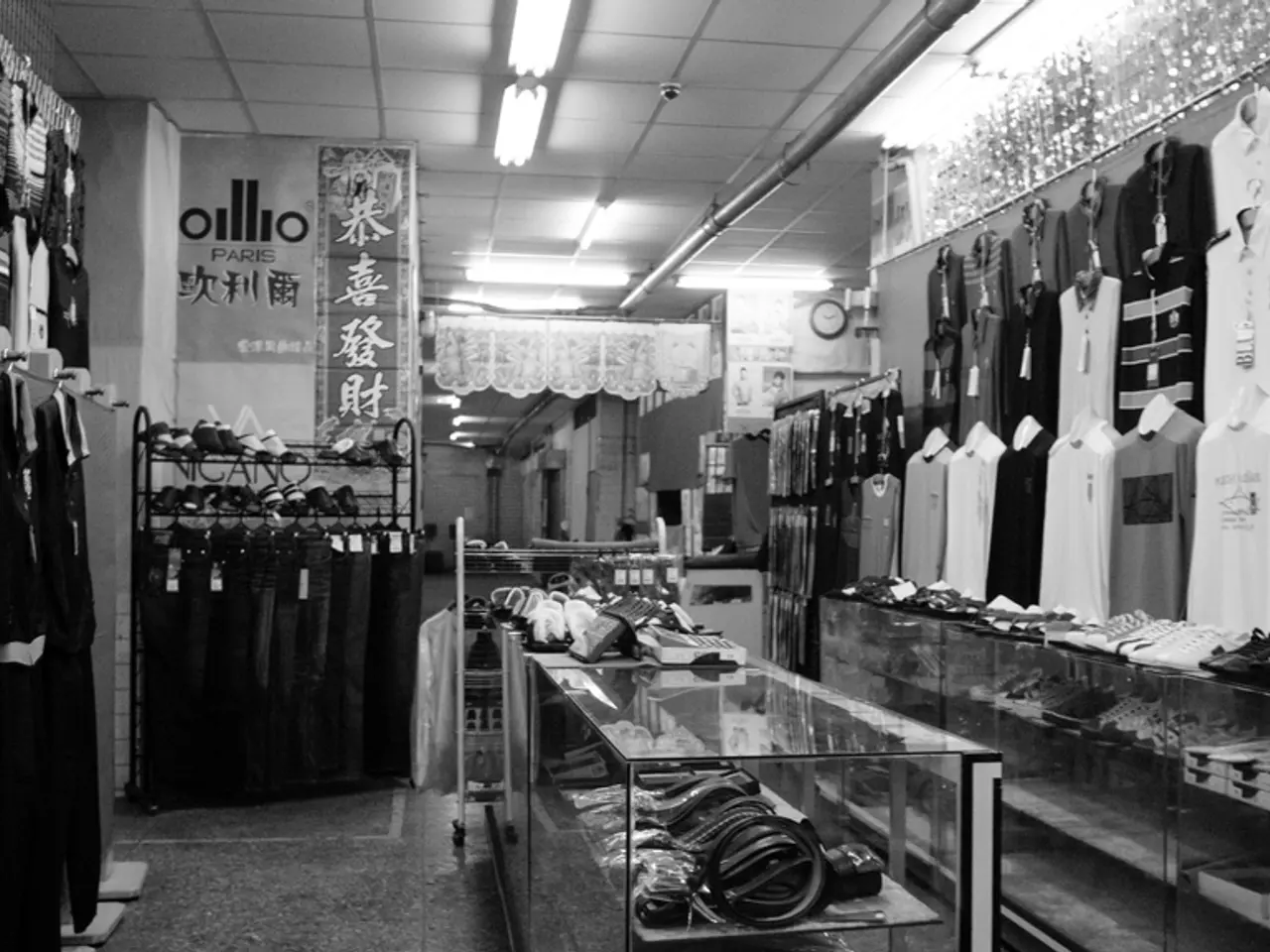Transforming Fashion: The Impact of Blockchain Technology on the Industry
The fashion industry is undergoing a significant transformation, with blockchain technology playing a pivotal role. This ground-breaking technology, first introduced during Shanghai Fashion Week 2016, is revolutionising the way brands manage their supply chains, engage consumers, and authenticate products.
Transparent and Tamper-Proof Product Histories
Blockchain enables the creation of transparent, tamper-proof product histories, tracking garments from raw materials to the finished product. This transparency builds trust with consumers by showing verified ethical and sustainability claims. By recording sourcing, labor conditions, and environmental impact, fashion brands can promote verified ethical production and encourage recycling and circularity.
Combatting Counterfeiting and Verifying Authenticity
Blockchain's immutable ledger and digital IDs securely record every step in the product journey, helping brands and consumers distinguish genuine products from counterfeits. According to the Global Brand Counterfeiting Report 2018, the estimates of offline and online counterfeiting of textiles, cosmetics, clothing, and footwear have reached a staggering $98 Billion mark. Blockchain technology offers a solution to this problem, reducing global losses due to fake fashion goods.
Supporting Sustainability and Ethical Practices
Smart contracts can enforce ethical conditions automatically within the supply chain, streamlining trust and reducing administrative friction. By using blockchain, brands can showcase their commitment to sustainability and ethical practices, meeting consumer demand for responsible fashion.
Smart Contracts Automation
Smart contracts ensure payments or actions happen only when agreed conditions are met, streamlining trust and reducing administrative friction. This automation can significantly improve efficiency in the fashion industry.
New Business Models with Digital Ownership
Blockchain enables the use of NFTs and digital product passports to authenticate luxury goods, facilitate resale, and unlock new revenue streams like crowdfunding collections or automatic royalty payments to designers. This digital ownership offers a new business model for the fashion industry.
Empowering Emerging Designers and Decentralizing Fashion Commerce
Crypto tokens and decentralized marketplaces allow independent creators to fund and sell collections directly without intermediaries, fostering diversity and innovation in fashion.
Applications in the Fashion Industry
Applications in the fashion industry focus on digital product passports and NFC tags, supply chain transparency platforms, luxury goods authentication and lifecycle tracking, sustainability initiatives, and fashion tech innovations.
In summary, blockchain provides the fashion industry with transparent, tamper-proof product histories, anti-counterfeiting measures, and tools to promote sustainability and new business models. This transformation is set to change how brands manage supply chains, engage consumers, and authenticate products.
Notable fashion brands such as LVMH, Hugo Boss, and Martine Jarlgaard have already begun exploring blockchain-based solutions. For brands looking to become leaders in the Blockchain-powered, digitally transformed supply chain ecosystem, contacting a blockchain development company in the USA may be a wise decision. By working with a Blockchain development firm, a fashion brand can design a product that gathers information from the right people and shows details of the fabric, raw material, or chemicals used.
Moreover, the concept of digital clothing is gaining popularity, with customers having the option to buy and be digitally fitted into digital garments. Blockchain technology allows for the creation of digital one-offs, offering uniqueness and desirability. Furthermore, it makes it convenient to track royalty payments, allowing designers to develop an unchangeable proof of creation and track trademarks, license designs, and royalty programs.
In conclusion, blockchain is not just a key part of the changing fashion industry but also a prime technology and trend in the media and entertainment industry due to its convenience. The future of fashion is digital, transparent, and sustainable, and blockchain is the driving force behind this revolution.
- As the fashion industry moves towards a more sustainable and transparent future, blockchain technology helps in recording product histories, managing supply chains, and combatting counterfeiting, transforming the industry's ethos to one that promotes ethical practices, supports emerging designers, and creates new revenue streams.
- With advanced applications like digital product passports, decentralized marketplaces, and NFTs, blockchain enables the creation of tamper-proof, traceable product histories, while also empowering independent designers and fostering innovation, all while ensuring authenticity and fighting offline and online counterfeiting in the fashion-and-beauty sector, reaching estimates of $98 Billion in offline and online counterfeiting.




